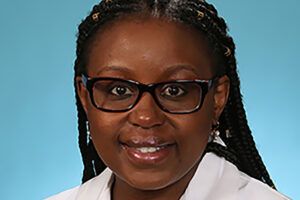 Matifadza G. Hlatshwayo, clinical instructor at the Washington University School of Medicine in St. Louis
Matifadza G. Hlatshwayo, clinical instructor at the Washington University School of Medicine in St. Louis
The year 2020 has been shaken by an unknown virus that goes by many names: coronavirus, the family of viruses from which it originates; COVID-19, the colloquial abbreviation; and severe acute respiratory syndrome coronavirus 2, or SARS-CoV-2, its official full name.
As humanity recalculated its route and journeyed through this painful “new normal,” the world began postulating the mechanism by which we would be saved. For a little while, in the spring, many of us were already imagining the “after” time, when we’d be cracking jokes over drinks and gathering again for game nights.
It won’t be long now, Americans figured. We, after all, live in this nation—armed with agencies and scientific prowess that seem to rival Marvel or DC. We would surely crack the COVID code. But days turned into weeks and then months of uncertainty, marked by a particularly challenging disease, few treatment options and ineffective leadership. After traversing a series of syndromic twists and evasive therapeutic turns, we have come to focus on our end game: a vaccine.
Read the full piece in Newsweek.